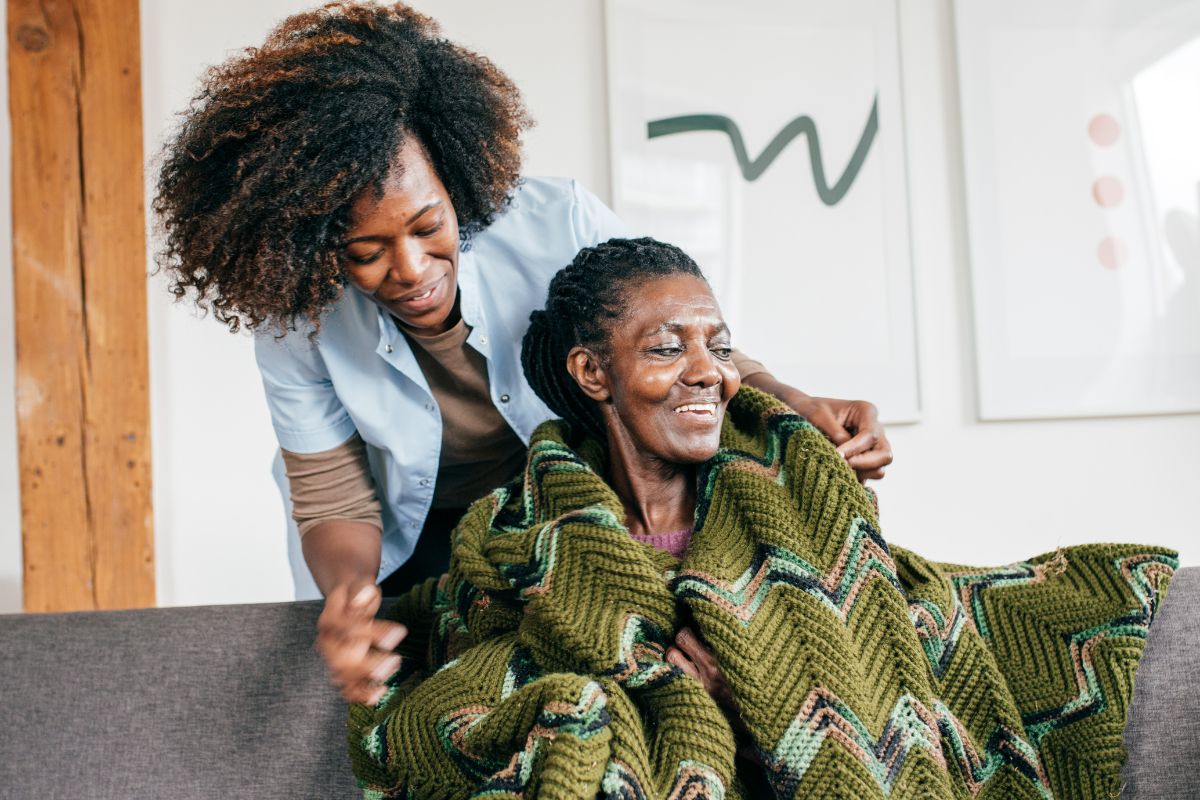Building trust in any relationship can be difficult and time-consuming. As our loved ones age, their care becomes a top priority, and finding a caregiver who aligns with their needs and values can be challenging. However, even when a caregiver has been hired, tensions may arise between the family and the caregiver, leading to potential conflicts and a breakdown of trust. This blog post will explore practical strategies to foster trust and open communication between families and their aging loved one’s caregiver, ultimately promoting a harmonious and supportive environment for everyone involved.

Open Communication Channels
Effective communication is the cornerstone of any successful relationship, which also applies to the caregiver-family dynamic. To build trust, it is essential to have open communication channels from the very beginning. Set aside time to discuss and manage expectations, ensuring that both parties clearly understand the care requirements and responsibilities. Address any potential ambiguities and encourage ongoing conversations to adapt to changing needs. Building rapport through open communication creates a natural foundation for trust to develop.
Be Upfront About Past Experiences
If there have been challenges or negative experiences with previous caregivers, it’s important to address them diplomatically and honestly. Explain what went wrong in the past and how it affected the senior and the family. This allows the caregiver to gain insights into your concerns and preferences, which can help them tailor their approach and avoid potential pitfalls.
View the Caregiver as a Person, Not Just an Employee
To establish trust, treat the caregiver with dignity and respect. Acknowledge that they are not just employees but human beings with their own feelings, aspirations, and challenges. Cultivating a supportive and respectful environment will encourage the caregiver to feel valued and invested in the well-being of your loved one.

Problem Solve Together
Demonstrate your commitment to the caregiving process by actively engaging in problem-solving. Roll up your sleeves and offer assistance when possible, showing your willingness to work together for the mutual satisfaction of all parties involved. Collaboration can foster a sense of teamwork and trust, making it easier to address challenges and find solutions.
Provide Feedback with Compassion
Giving and receiving feedback can be challenging for the family and the caregiver. Approach feedback with compassion, understanding that it can be difficult for the caregiver to hear that you are unsatisfied or that mistakes have been made. Use a gentle tone and be specific about the areas of concern, always keeping the well-being of your aging loved one at the forefront of the conversation. Remember that caregiver burnout is real and happens often. Keep this in mind when interacting.
Ask for Their Perspective
Be open to seeking the caregiver’s perspective or input. Demonstrating courage and humility, ask if there is something you may be missing or not understanding. Inquire about their priorities and motivations without putting them on the defensive. This approach shows that you genuinely value their opinion and are willing to work together to provide the best possible care for your loved one.

In conclusion, building trust with your aging loved one’s caregiver is essential for fostering a supportive and harmonious caregiving environment. Families can build a strong foundation of trust with their caregivers through open communication, respect, problem-solving, and compassionate feedback. Remember that caregiving is a collaborative effort, and by working together, you can create a nurturing and safe space for your aging loved one, ensuring their well-being and happiness in their golden years.
If you need advice, resources, or a trusted referral, don’t hesitate to contact our team of experts at Options for Senior Living today.


